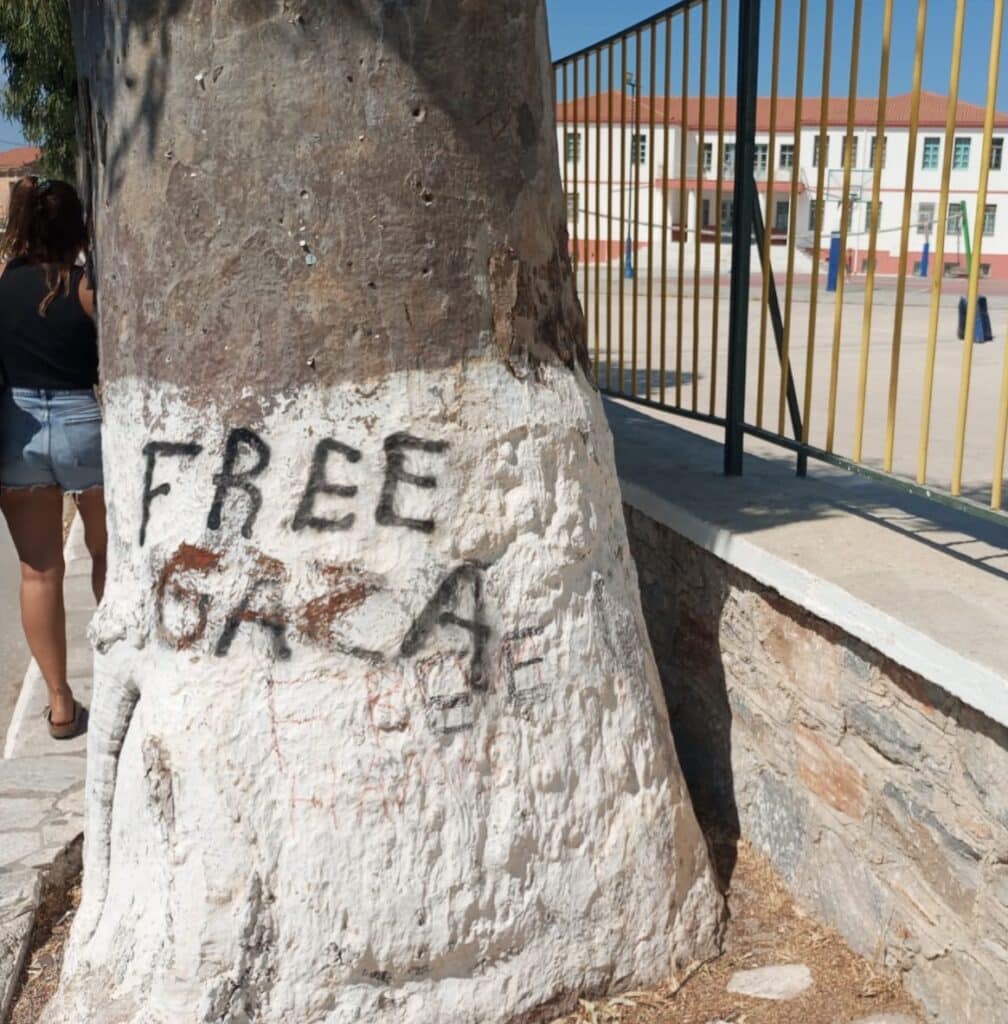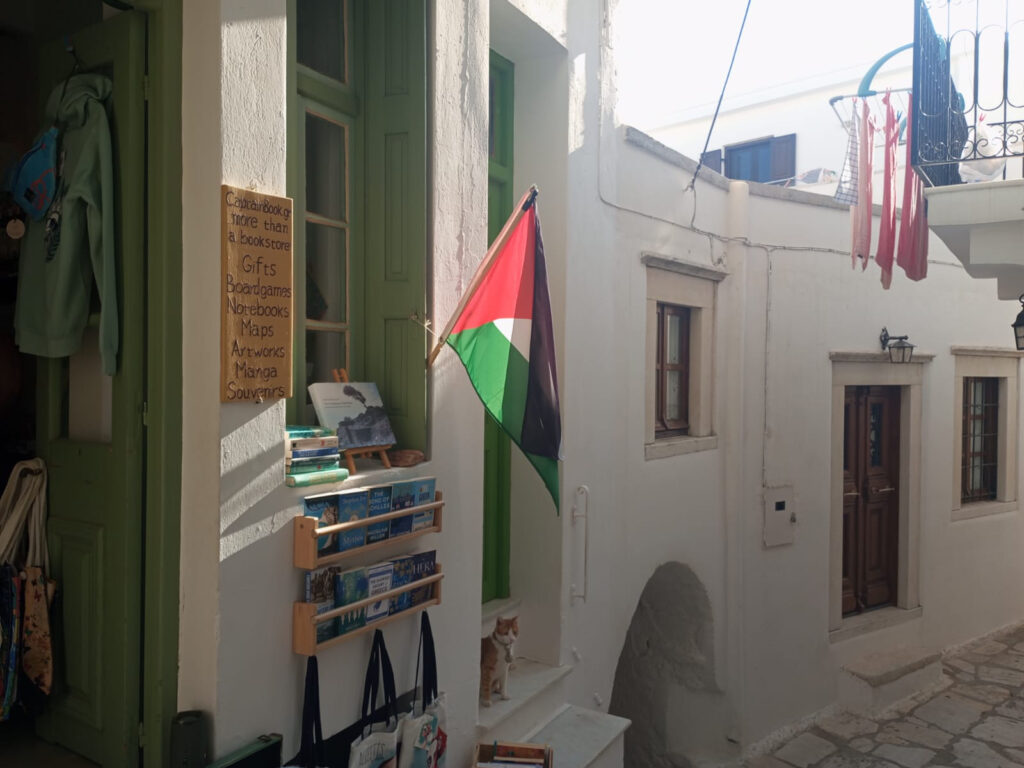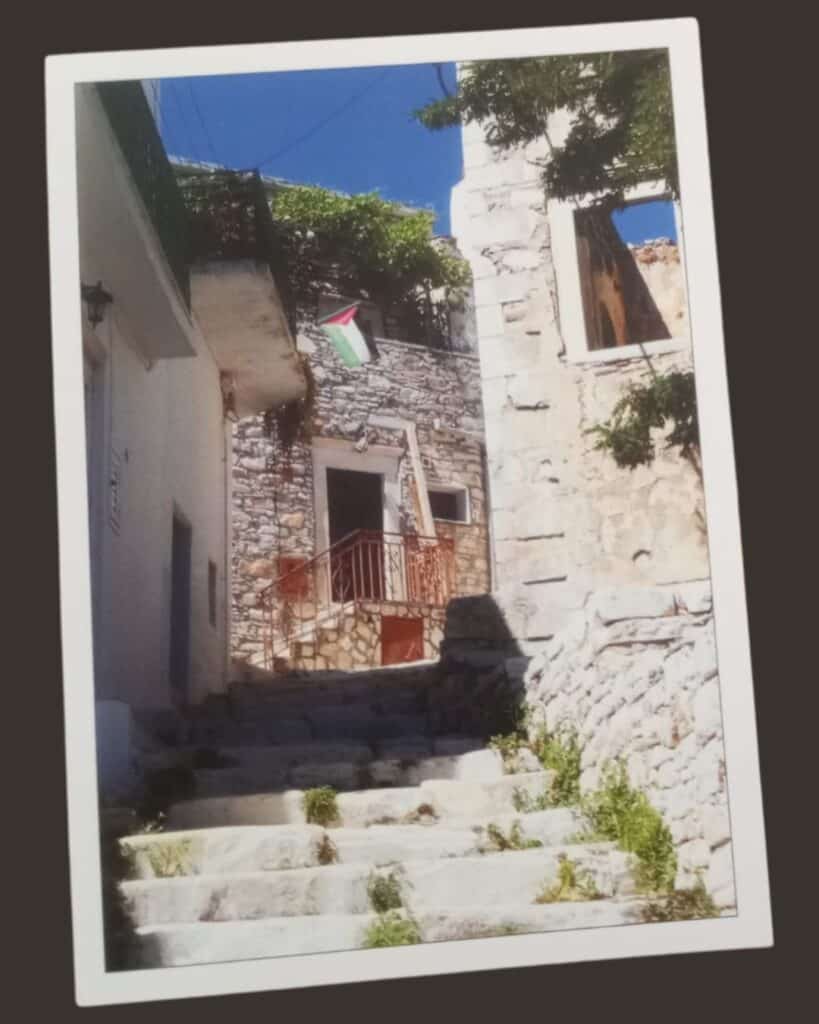Every August, the Greek islands come to life. Greeks travel there to escape the intense heat of the cities, looking to cool off in the Aegean Sea. Tourists from the rest of the world arrive for affordable, postcard-perfect holidays.
This year the balance is off. Soaring prices – driven by over-tourism and worsened by the cost-of-living crisis – have forced many Greeks to cancel their plans, while the islands remain a relatively cheap destination for Northern neighbours. Many work through the summer in hospitality-driven economies, serving comparatively well-off visitors.
Still, during the summer months, younger generations with roots in island villages return, alongside first-time visitors. This year, they brought with them the flag of Palestine and raised it alongside those already flying from balconies and shopfronts.
Over the past few weeks, I visited the island of Naxos. Barely a village was untouched by declarations of solidarity with the Palestinian people: flags in squares, outside shops, hanging from the windows of homes; slogans sprayed on street corners; posters declaring that staff supported the people of Gaza – and that anyone who didn’t could take their business elsewhere. The Palestinian flag even appeared on the postcards.



In the first days of the trip, I’ll admit that I romanticized it. But at some point, I realized there was a war going on over these symbols. Retracing my steps a few days later, I saw that the slogans had been crossed out and the posters torn down.
While there, we visited the Axiotissa taverna. The owners had hung a poster near the bathroom, expressing their solidarity with Palestine. On the ferry back a few days later, checking my news feed, I saw that one of them had been denounced as an antisemite in the UK’s Daily Mail newspaper. A group of British holidaymakers had tried to rip the poster down. When he challenged them, they attacked him for his stance on Gaza. He threw them out. They filmed it, made it go viral, and claimed he had done so simply because they were Jewish.
The story escalated, prompting an intervention from the Greek government. Its spokesperson, Pavlos Marinakis, stated that the owner should be prosecuted under hate-crime legislation. The health minister rushed to reassure “our friends from the Israeli Embassy” that “this is not Greece, nor is it how the Greek people are.”
But the Axiotissa has not backed down:
“The right side of history is not a comfortable couch in a quiet corner. It is a constant struggle for social justice and dignity, against the destructive policies of power and the horror of war.”
It’s strange – to say the least – to see a government that has spearheaded methods of mass drowning and incarceration of migrants suddenly appear so concerned with questions of racism. Not for nothing are the Aegean and Mediterranean Seas known as the graveyard of Europe. The Greek islands have become a site of struggle against the genocide, through a growing refusal among the islanders to be bought by those complicit in it. They have been targeted by a state-led attempt to redefine and weaponize anti-racism.
It could have disoriented them, when their symbols of solidarity were recast as declarations of hatred. But the islanders are undeterred. On Sunday, a boat is scheduled to leave the island of Syros, joining over fifty other ships en route to break the siege of Gaza. These seas will remain Europe’s graveyard. They might soon stand for something else too.




